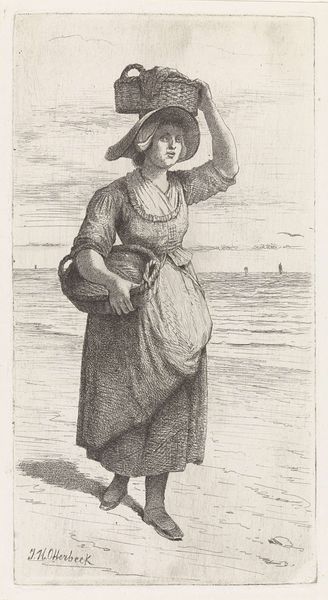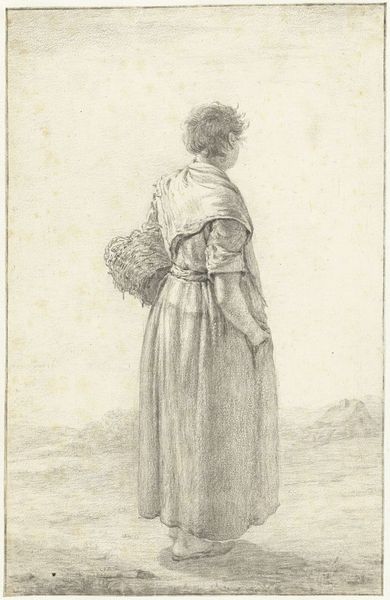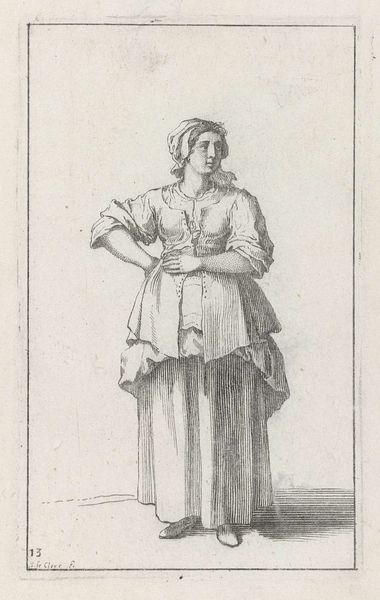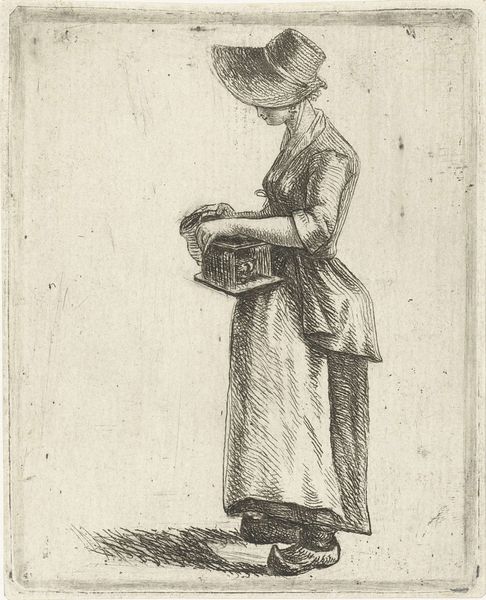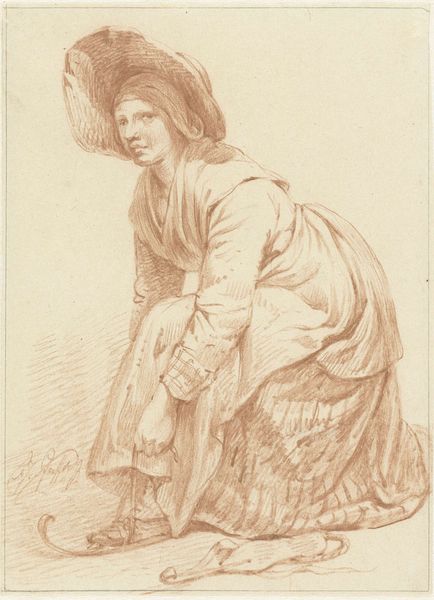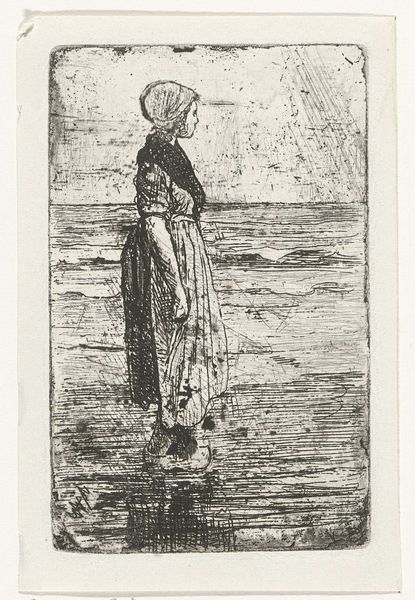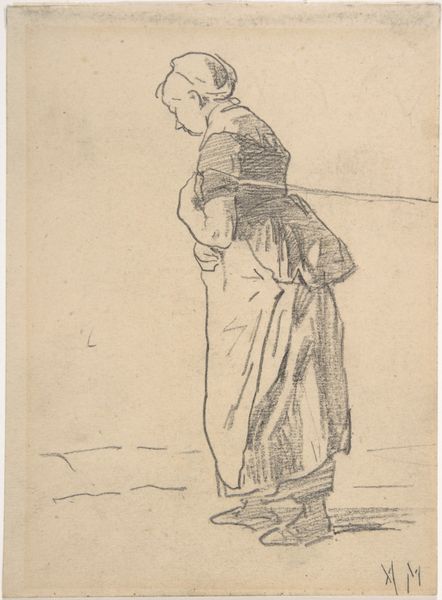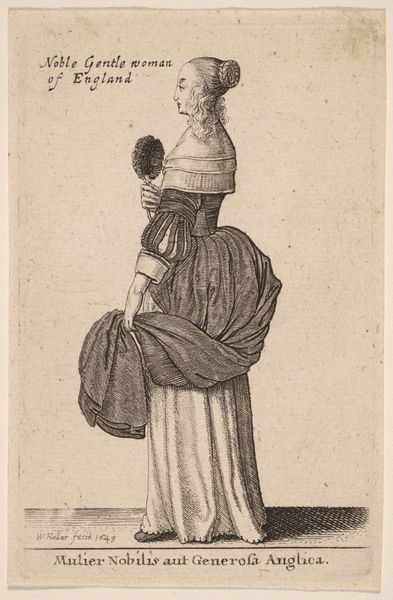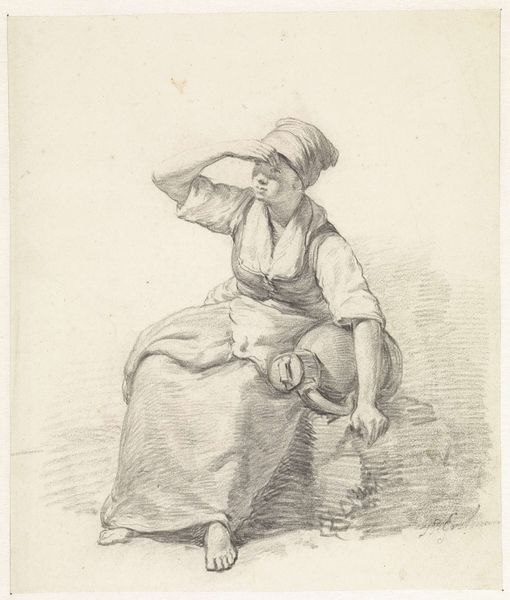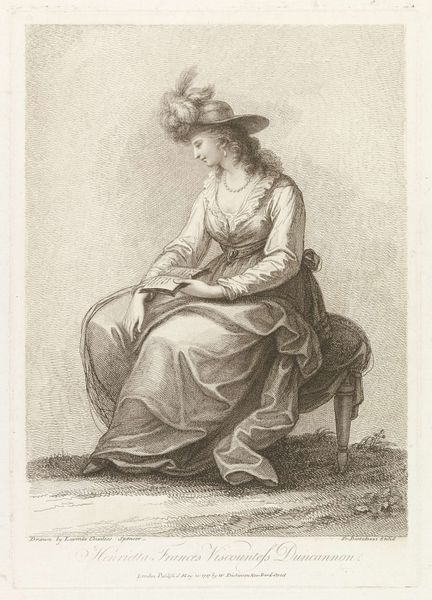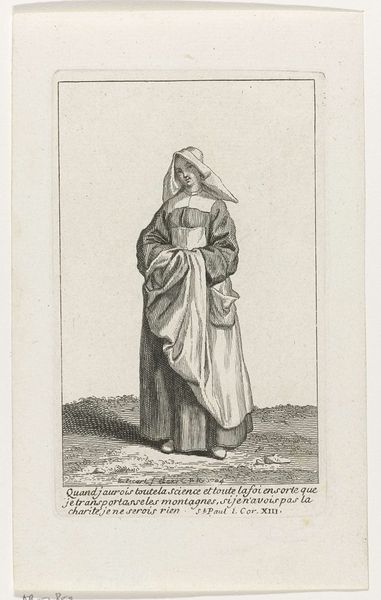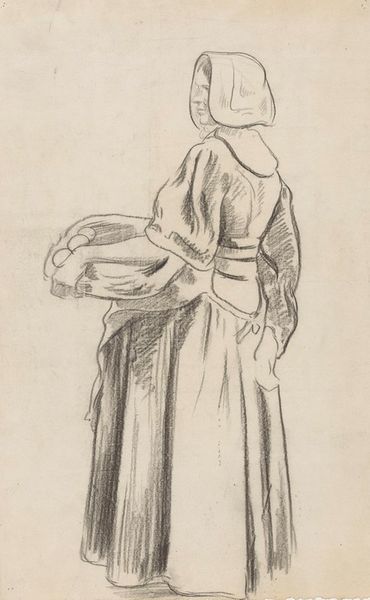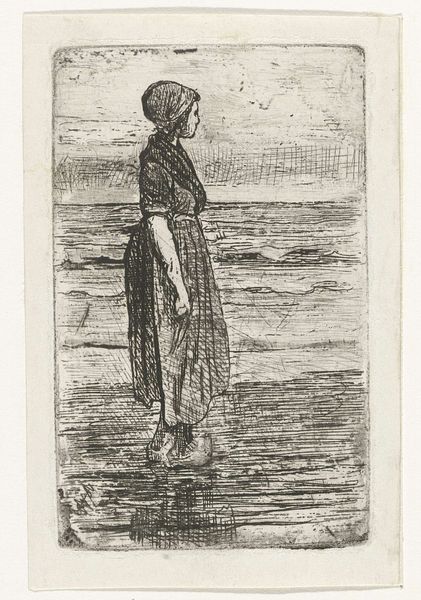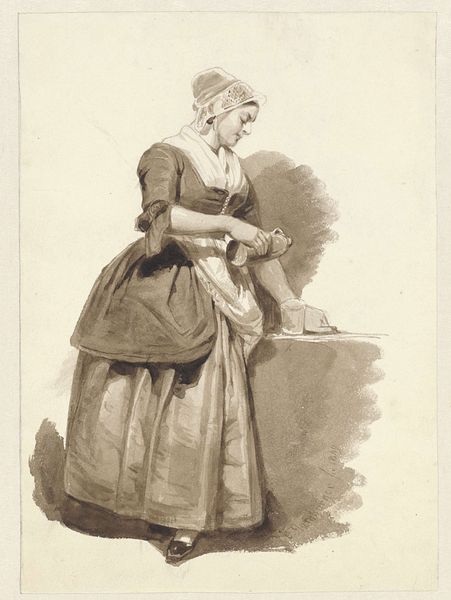
print, etching
portrait
etching
landscape
genre-painting
realism
Dimensions: height 213 mm, width 114 mm
Copyright: Rijks Museum: Open Domain
Jacobus Hermanus Otterbeek made this print of a woman with baskets, likely sometime in the late 19th century. The method used was etching, which involves drawing into a wax ground on a metal plate, then submerging it in acid. The acid bites away at the exposed metal, creating lines that hold ink. It’s important to think about the material of this artwork, the making of it. Otterbeek used a process that allowed him to create a scene with tonal variation, and with an intimacy appropriate to his subject. Look at the woman’s face, etched with precision. She's burdened with the baskets. How would these be made? It shows an understanding of craft and labor. The print is small, but it gives us a glimpse into the life of a working woman. And, in a broader sense, the image asks us to consider the relationship between artistic expression and the realities of labor. It shows that all art, even something as seemingly simple as a print, is deeply intertwined with the world around it.
Comments
No comments
Be the first to comment and join the conversation on the ultimate creative platform.
